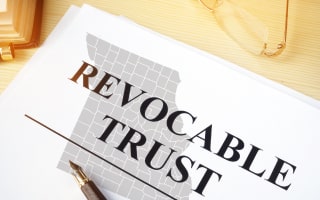How to Find Owners of Properties
in Missouri

The process of conducting a property owner search in Missouri is straightforward. The State Archives and county recorder's offices hold most public records relating to property and allow individuals to search both online and in person.
There are also third-party online resources that charge a fee to help people conduct a Missouri house owner lookup, verify property records, and more.
Wondering how to start? Here are some pointers:
Visit the Recorder of Deeds Office
In Missouri, property records are public and stored at county levels. One of the many ways to trace these records is through the recorder of deeds (in some other states, it is called the registry of deeds). The recorder of deeds is a government official who keeps all public information related to property ownership. These typically include land title documents, mortgages, property ownership history, property dimensions, and any liens or encumbrances on the property.
There are 114 counties in Missouri, each with a recorder of deeds office. To find property records in Missouri, you do not have to visit all 144 county recorder's offices. Instead, you can limit your search to the specific county where the property is located.
If you prefer hands-on research or seeing physical documents, these offices are the best places to start your search. There, you can see the physical records and even request copies. These days, visiting the recorder of deeds office is no longer a strict requirement, as all of the counties in Missouri now have online databases to aid this search. The database(s) also list contact information for county officials if you run into any confusion or errors.
Here are the websites of the recorder of deeds of some of the major counties in Missouri:
- Jackson County
- St Louis County
- Jefferson County
- Cole County
- St Charles County
- Boone County
- Greene County
- Cass County
- Texas County
- Carroll County
Search the Land Records Website
Sometimes, a visit or online search with the county recorder of deeds office may not reveal any relevant information. There are many reasons why this happens, but it does not mark the end of the search. The Missouri State Archives, an official repository for state land records, is another great place to check.
Some of these lands come from the French and Spanish, while some are Federal land, given to the State of Missouri for specific purposes, like schools, for instance. All these records are put together in the Missouri Land Records Database, and there are over 280,000 entries. On this database, you can find property owners' names, such as the first owner, the county where the land is located, and the property description.
Simply input the following information to start your search:
- Last name
- First name
- Year Range
- Section
- Township
- Range
- County
- Series
For best results from the database, try searching with only names because not every record has specifics like year, location, and county.
Try the County Assessor's Office
Assessors are government officials who estimate the value of properties within their jurisdiction to determine what each property owner should pay in taxes. These assessors also keep records of the properties they value and other personal property records for vehicles and equipment.
Every county in Missouri has a local assessor's office where interested persons can visit to find property information in the state. Here are the websites of assessors' offices in some of the top counties in Missouri:
- St Louis County
- Jefferson County
- St Charles County
- Clay County
- Greene County
- Platte County
- Buchanan County
- Boone County
- Cole County
- Scott County
Search Tax Records
In Missouri, it is possible to check who owns a property from tax records. Tax records are part of the documents kept at the assessor's office. So, you can visit the assessor's office in the local county where the property is located to request the property's tax records. You can also use the available online resources on the county assessor's website.
Hire a Title Company/Agency
Doing a property title verification yourself can get tedious sometimes, especially if there are many properties to check out and many records to search through. This is where third-party services like a title company come in to help the buyer and seller ensure that no problems come up in their transaction.
Title companies or agencies are independent third parties who can help conduct property searches, verify the true owner of a property, and determine whether there are any mortgages, liens, or other encumbrances on it.
People tend to hire these companies whenever they want to buy a home or make a real estate investment. Title companies typically use public records to trace the history of properties and any claims on the property. They can also verify that the property in question meets the specifications that the buyer claims it does.
Estimating the cost of these title companies can be tricky because they typically charge depending on what services you request, the property's location, and its value. For instance, a simple title search for a property that goes back 30 years can cost around $200.
Then, there's the title insurance, which can cost around $2,000 or 1% of the estimated value, depending on the property's value. There are also additional fees for preparing documents and other add-on services. These can cost in the range of $150 to $300. Note that these are estimates, and you must verify with the agency you want to go with to get accurate figures.
You may also want to speak to people living in the neighborhood, real estate agents, lawyers, and even online real estate resources for more information on the place you're looking to invest in.
![]() Try Commercial Services
Try Commercial Services
When trying to find property owner by address or a free Indiana house owner lookup is not working, you can try commercial property search services. Although not as comprehensive as the official records, commercial property search providers do a good job of finding the general information on a property that can help you make a decision. They are also faster than a dedicated official public records search.
A good example of these companies is PropertyCheckers.com, which connects users to a wide range of public records across Missouri. This platform lets you quickly find information on current and past owners of a property you're interested in. Sometimes, the owners may be hidden through LLCs, trusts, and other entities. Propertycheckers.com can help you get behind the mask and see who owns the property.
Here's how to do a property search on the website:
- First, visit the website propertychecker.com and pick the search option you prefer.
- To do an address search, simply enter the property's address and click the search button.
- To search by name, provide the first and last names of the property owner and the city and state in question, then click "search".
- A search by phone number only requires you to input a phone number and click "search".
- You can also search by inputting an email address or a parcel ID. For a search by parcel ID, you must also provide the state and county where the property is located.
What Are the Different Types of Property Ownership in Missouri?

Every state has unique property ownership laws, and knowing these laws can help transactions move smoothly and set reasonable expectations in the minds of both the buyer and seller. There are many ways to own property in Missouri under the different ownership structures.
Each of these ownership structures has its pros and cons, and here are some common types of property ownership in Missouri:
-
Sole Ownership: Under this type of ownership, one person or entity owns a property with full rights, allowing them to sell or transfer their rights at will, without permission from another party.
-
Tenancy by Entirety (TBE): This is a recognized ownership arrangement common among married couples, allowing them to own property jointly. It operates like a joint tenancy because the other takes over the property when one spouse dies. It also offers liability protection for the other spouse where one spouse is sued.
-
Tenancy in Common: This co-ownership allows multiple people to own a property together, although not in equal shares. So, while one person can own 70% of the property, the other can take the remaining 30%. However, when one party dies, their share does not go over to the co-owner but to the deceased family as an inheritance.
| Ownership Title | Description | Benefits | Legal Implication |
|---|---|---|---|
| Sole Ownership | An individual has total ownership and control of the property. | The sole owner has complete control over decision-making for the property. | The owner covers all debts and liabilities that may arise from the property. |
| Joint Tenancy | Two or more persons equally own one property. | Each owner has equal access and control over the property. | An individual owner cannot transfer the property through a will. |
| Tenants by Entirety | This is a class of joint ownership strictly for married couples. | It shields the property from a spouse's debt. | If there is a divorce, the property ownership automatically changes to a tenancy in common. |
| Community Property | This refers to property bought during marriage and owned equally by the couple. | Property can easily be shared if the marriage ends. | Dividing the community property during a divorce can be very complicated. |
| Tenancy in Common | Two or more persons owning shares in a property, not necessarily equally. | Ownership here can pass to heirs and not the other co-owner. | There is no right of survivorship here. A co-owner's shares go to their heirs, not the other co-owners. |
| Condominium Ownership | A person owns a unit in a building and co-owns common areas with other owners. | Full ownership of one or more units in a large property. | This type of ownership attracts monthly fees and has community rules that owners must abide by. |
| Cooperative Ownership | A corporation owns the property, and its members (who have shares in the cooperative) own units through the corporation. | This type of ownership attracts a lower initial purchase price. | Members do not outrightly own property but do so through their cooperatives. |
| Trust Ownership | A trustee manages a property in trust for the beneficiary | There is privacy and adequate asset protection with this type of ownership | Creating a trust can be complicated and expensive. |
| Life Estate | Under this type of property ownership, a person owns the property only while alive. | It allows a person to smoothly transfer their assets while alive, without a will. | The interest of the future owner will be considered before any sale or refinancing, such as a mortgage. |
Finding the Owner of a Trust or Corporation That Owns Properties in Missouri

Sometimes, the information about a property may be hard to find because it is under a trust or LLC. This type of ownership offers the owners privacy, so a random property owner search in Missouri will not pull up this information.
In cases like these, the best thing to do is enlist professional help from third parties like a title agency or a real estate attorney to find the owner of a trust property or persons behind an LLC.
But if you want to, you can search by checking through relevant public records like deeds, tax records, etc. You can also search local business directories like that of the Chamber of Commerce in the area where the property is located. There are also other professional databases with valuable information, like LexisNexis and Westlaw, for instance.
Here's how you can start the search:
Finding the Owner of a Trust in Missouri
Trust instruments are typically private by nature. As such, they may not come up in regular property records. But you can't knock out that option until you try. So, you can first search property records for the property title, which will show the name of the current trustee.
If that does not work, try basing your search on the property location to find deeds for properties in that area. The deed that transferred the property to the trust should have the name of the trust, the kind of conveyance, and the current trustee. Alternatively, you can trace the title owner by running a search using the address listed on the trust.
Finding the Owner of an LLC in Missouri
The best way to find the owner of a Limited Liability Company (LLC) in Missouri is through a business entity search. Missouri has an online database listing all registered businesses in the state, including LLCs, limited partnerships, and nonprofits.
Here's how to search:
- Visit the online database.
- Choose the search criteria, such as whether you prefer to search by business name, registered agent, charter number, or name availability.
- For a search by business name, simply provide the name in the provided column. If you don't know the full business name, you can use the "Includes name" provision, which allows you to narrow the search to businesses that start with any word(s) you provide. This is handy when you can only remember a part of the name.
- After this, click search. The result page should then appear, showing a list of results with names matching your search.
- Click the business name that matches your search to view all details about the business, including ownership details.
Finding the Owner of a Corporation in Missouri
Interested persons can also find information on corporations via the Missouri Secretary of State's online database, following the steps above.
Common Methods of Property Transfer in Missouri

A property deed is a real estate document that officially transfers the property from the seller to the buyer. It typically contains the seller and buyer's names, the property description, and the parties' signatures. Until this document is signed and delivered, the transaction is still incomplete.
Here are the most common types of property deeds in Missouri:
-
Quitclaim Deeds: Under this type of deed, the seller does not make any promises or assurances to the buyer about the title. It offers the least protection in Missouri and is more common among family members.
-
Warranty Deeds: These are arguably the most popular types of deeds in Missouri. They guarantee the buyer that they are the actual owner of the property and that there were no issues with the property title while the seller was the owner.
-
Deed of Trust: Borrowers use this deed to take security against a property. It allows the lender to foreclose the property if the borrower fails to repay it.
Other types of property deeds are:
- Bargain and Sales Deed
- Mortgage Deed
- Grant Deeds
Step-by-Step Guide to Property Transfer in Missouri

Before buying a property in Missouri, do everything you can to ensure there are no encumbrances on the property. Also, learn the processes involved in property transfer, as this will help you make informed decisions and avoid issues in the future.
Here is a step-by-step guide to property transfer in Missouri:
- Determine the Type of Property Transfer: First, identify how the property will be transferred, whether by sale, inheritance, or other means.
- Title Search: Conduct a title search to verify that the seller has the authority to sell that property through a title search.
- Prepare the Deed: After confirming ownership, prepare the relevant documents that will serve as proof of the valid transfer of title.
- Pay Transfer Taxes: Missouri does not require transfer taxes after selling a property.
- Record the Deed: After signing the deed, take it to the local recorder of deeds in the county where the property is located to record the transaction in public records.
- Review and Recording: Before entering the deed into public records, government officials must first review and verify the document. After that, they present a copy of the recorded deed to the new owner. The fees vary depending on the transaction, but they typically cost around $20 to $25 for the first page and $3 for every other page after that.
- Receipt of Recorded Deed: As stated earlier, the recorder will present a copy of the recorded deed to the new property owner.
- Update Records: The new property owner must visit the county tax assessors and other relevant organizations to update their ownership records.
- Secure Title Insurance: The new owner can also get title insurance on the property to protect them from future claims. Title insurance costs are not fixed but depend on the property's final selling price.
Property Ownership Guide
Missouri Homeowner Lookup
- Owner(s)
- Deed Records
- Loans & Liens
- Values
- Taxes
- Building Permits
- Purchase History
- Property Details
- And More!